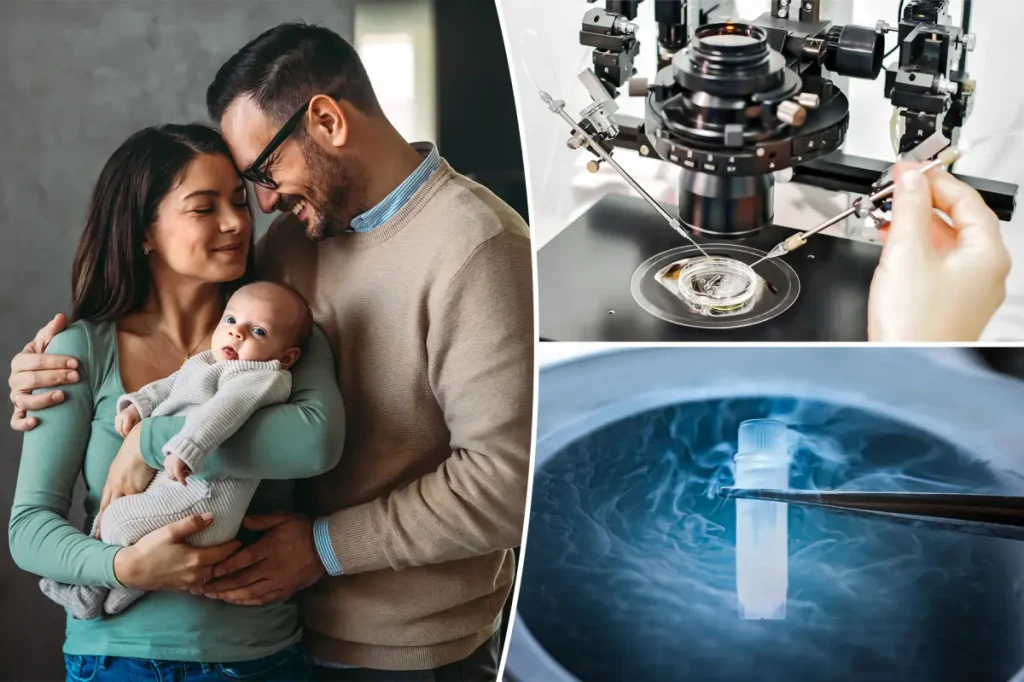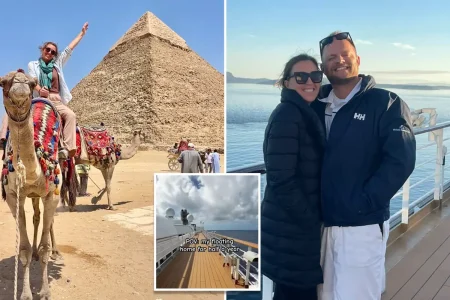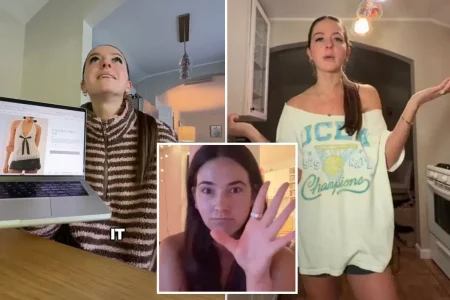Predicting the Path to Parenthood: How AI is Transforming Fertility Treatments
In the challenging world of fertility treatments, where hope often comes with hefty price tags and no guarantees, UK startup Gaia is pioneering a revolutionary approach that combines artificial intelligence with compassionate financial solutions. Founded by Nader AlSalim following his own difficult $50,000 journey through five rounds of IVF across multiple countries, Gaia aims to transform what has traditionally been an expensive gamble into a transparent, manageable plan for aspiring parents. “We flipped the model so families know exactly what they’re signing up for,” explains AlSalim, who describes his own fertility journey as not just financially draining but emotionally devastating due to the constant uncertainty. “The system isn’t built for people, it’s built for procedures,” he reflects, pinpointing the fundamental problem his company now addresses by providing would-be parents with “agency, clarity and dignity amidst such uncertainty.”
At its core, Gaia’s business model represents a dramatic departure from traditional fertility clinic approaches. Rather than requiring full payment upfront with no guarantee of success, Gaia offers a fixed total cost determined before treatment begins, with clients paying just an initial “protection fee” of about 20% of the total treatment cost. The company then covers all expenses for up to three rounds of IVF at partner clinics across the country. The truly revolutionary aspect comes next: if treatment results in a successful birth, parents repay Gaia over up to eight years, with interest only beginning after the child is born. If after three cycles there’s still no baby, clients walk away owing nothing beyond their initial fee. This approach tackles one of the most prohibitive aspects of fertility treatments – the potential need for multiple expensive rounds of treatment, with each failed attempt requiring additional funds that many families simply don’t have.
Expanding their innovative financial model, Gaia recently partnered with Manhattan’s Extend Fertility to offer the first-ever egg freezing guarantee in the United States. This program specifically targets women in their 30s who want to preserve their reproductive options but might hesitate due to the steep costs and uncertain outcomes. The guarantee includes a free second round or refund if the first cycle doesn’t produce enough mature eggs, and a full refund if the frozen eggs don’t lead to a live birth within five years. For those who do successfully conceive using their frozen eggs, Gaia offers a five-year repayment period, making the entire process more accessible. “The goal is to make sure egg freezing isn’t a luxury for those with $20,000 to spare, but an accessible choice for many more,” AlSalim explains, addressing a critical need for more inclusive approaches to reproductive planning.
What makes these financial guarantees possible is Gaia’s sophisticated artificial intelligence and machine learning platform. This technology analyzes both individual biometric data and patterns from millions of historical IVF cycles to predict with remarkable accuracy how many rounds of treatment a couple is likely to need. “We use AI to forecast the weather and hedge the financial risk of natural disasters. Why can’t we predict something as simple as an ideal pathway to building a family?” asks AlSalim. The results are impressive – Gaia reports its platform predicts IVF success with 90% accuracy and has already contributed to over 100 births, with at least that many more on the way. This predictive capability allows the company to make financial promises that would be impossible without such precise risk assessment, transforming fertility treatments “from a game of chance into a guided, informed journey.”
The human impact of Gaia’s approach extends far beyond its technological innovations. For many couples, the fertility journey involves not just medical procedures but a profound emotional rollercoaster of hope and heartbreak. AlSalim knows this firsthand, describing his own path to parenthood as “lonely and exhausting” within a medical system that often felt “cold and indifferent.” By providing financial certainty, Gaia addresses a significant source of stress for prospective parents. “The real value is peace of mind,” AlSalim emphasizes. “It’s not a list of services; it’s akin to a membership to the most optimal path to having a child.” This peace of mind can be transformative, allowing couples to focus on the emotional aspects of their fertility journey without the added pressure of uncertain and escalating financial commitments.
Looking to the future, AlSalim reflects on his own six-year-old son and acknowledges the mixture of “science, luck, money and sheer willpower” that brought him into the world. “He is wonderful, but I also realize how many people never get that chance,” he says, emphasizing that the barriers are often financial and emotional rather than biological. While Gaia isn’t yet making fertility care less expensive overall, it is making the process more predictable, more fair, and “emotionally bearable” – transforming what has traditionally been a high-risk investment into a structured plan with meaningful protections. For the many individuals and couples who dream of parenthood but find themselves deterred by the unpredictable costs and outcomes of fertility treatments, Gaia’s innovative approach offers a new path forward – one where financial constraints and uncertainty need not be the factors that determine who gets to experience the joy of raising a child.













